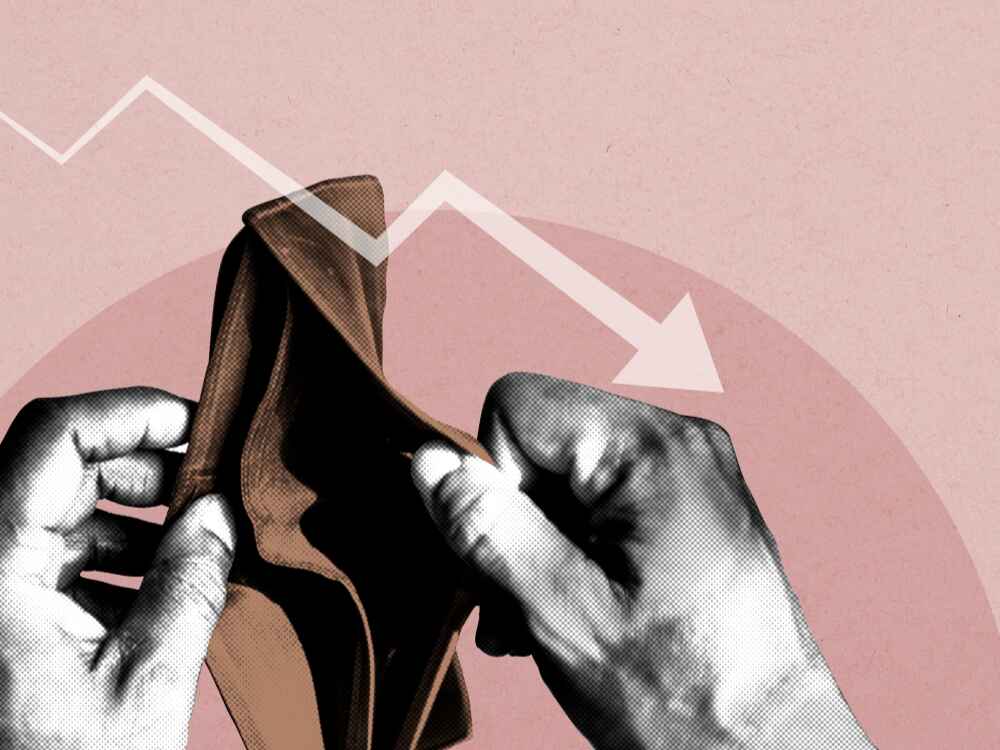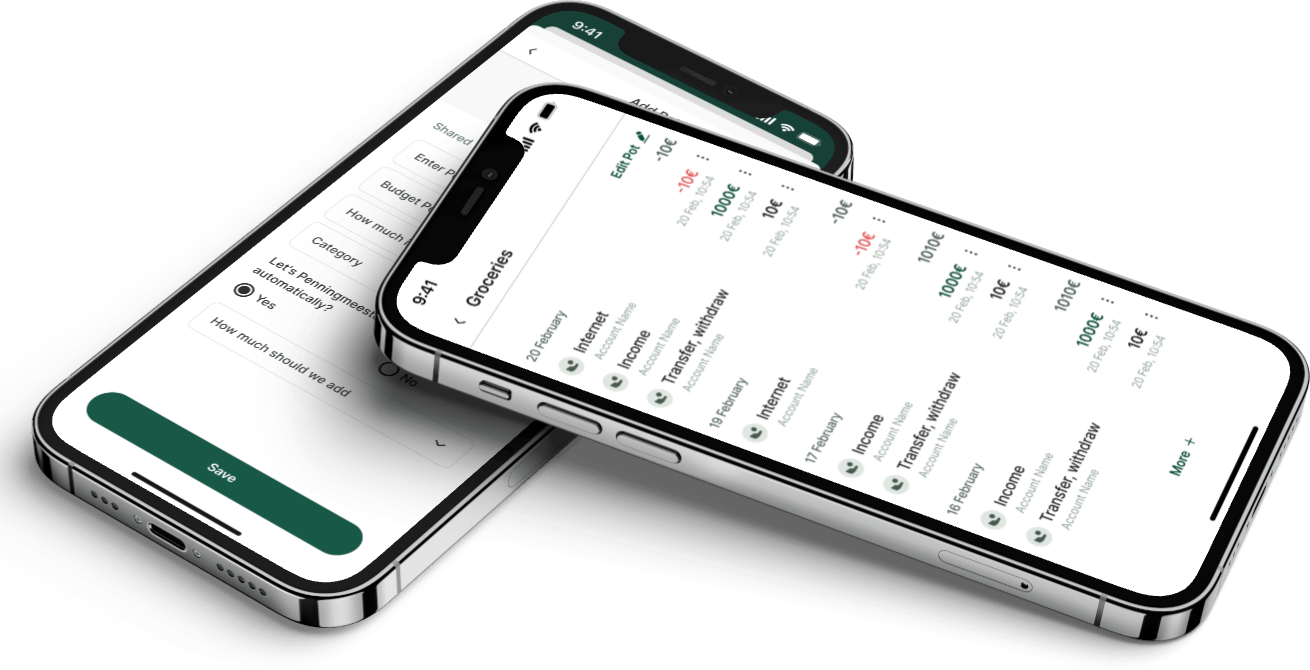Three levels of thrift: from “hardly notice” to “my neighbors think I’ve joined a monastery.”
Ah, my dear reader, saving money doesn’t have to feel like squeezing water from a stone. It can be… dare I say it… oddly satisfying. And in this guide I’m going to show you how you can potentially save thousands of euros every month.
When is the best time to save? I hear you thinking. The answer, as my man John D. used to say, is simple: “Save when you can; not when you have to.”
Some money-saving changes are so small you’ll barely notice them, yet they quietly stack up into hundreds of euros over time.
Others will pinch a little. They might mean rethinking a habit, making a different choice, or saying “not this month” to something you enjoy. But they’ll pay you back, month after month.
And then there are the bold moves, the ones that really shift the numbers. They take commitment. Dare I say it? They will take Sacrifice.
However, they’re also the fastest way to change your financial future. Sacrifice, in this sense, isn’t about deprivation. It’s about swapping today’s little luxuries for tomorrow’s big rewards: a debt-free life, a home of your own, or the freedom to work because you want to, not because you have to.

Tier 1: Easy Money Saving Tips That Won’t Hurt a Bit
Minimal lifestyle change | 15–60 minutes each | Goal: €150–€500 monthly.
Think of these as the loose coins in your sofa cushions. Except instead of €2.50 in lint-covered change, you’re pulling out €200 a month. Quick, painless, and strangely enjoyable.
- Cancel unused subscriptions (the low-hanging fruit): If you haven’t opened the app since pre-pandemic times, it’s not a subscription. It’s a monthly donation to the void.
Savings: €5–€60 monthly | Time: 20 min - Downgrade subscription tiers (Netflix, Spotify, etc.): Do you really need that premium Netflix subscription? I understand you have a 4K TV, but does Netflix actually make the kind of movies in which you’ll notice any difference? I didn’t think so. That’s an easy €5 a month, and there’s surely more to downgrade.
Savings: €5–€25 monthly | Time: 10 min - Negotiate internet/mobile bills: Call them up, sound regretful, and drop a competitor’s price like a velvet hammer. They’ll suddenly remember all the “special offers” they have for loyal customers. If you can switch, even better.
Also, do you really need all that speed? And if your kids demand it for their games, let them pay. Or earn it by mowing the lawn while you lay back on the sofa playing FIFA.
Savings: €10–€35 monthly | Time: 15–25 min - Switch to fee-free banking (ditch hidden charges): Bank fees are like mosquitos: small but maddening. Swat them away. And are you sure you need a credit card? Not only will you pay less on fees without one, most likely you will also spend less on stuff you don’t really need.
Savings: €3–€15 monthly | Time: 30 min

- Automate payday savings and roundup savings: Pretend your savings account is another bill collector, only this one sends thank-you cards.
Savings: Variable | Time: 5 min - Energy quick wins (cutting utility bills): Replace the bulb in the kitchen, and you’ve lit your path to cheaper bills. Unplug vampire devices before they suck another euro. Air dry your clothes: a mid-tier dryer can easily set you back €1 a run. You have 2 kids, a job and hardly time for a life, let alone air drying clothes? Sell the old dryer and buy an A+++ heat pump model. It will pay for itself.
Savings: €8–€25 monthly | Time: 30–45 min - Grocery basics (weekly meal planning): Plan your dinners a week ahead, then shop like you’re on a mission, not a treasure hunt. Don’t visit the supermarket again. Instead, make sure you always have a cupboard full of backup soup tins (bought on sale).
Savings: €40–€100 monthly per person | Time: 30 min - Cashback & coupons (smart shopping apps): Think of it as a polite pickpocketing of the shops. They hand you a little back every time. Albert Heijn’s savings stamps essentially amount to a 1.22% additional discount on your groceries. BUT: never buy something just because you have a coupon, or because of the saving stamps. Instead, keep them stored and use them when you need to buy something.
Savings: €5–€30 monthly | Time: 15 min - Transport tune-ups (cheaper fuel use): A little air in the tires, a little planning with your errands, and suddenly your petrol lasts longer than your patience in traffic.
Savings: €5–€20 monthly | Time: 15 min - Insurance optimization (car, health, home): Is your car all-risk insured? Look outside and ask yourself very seriously if it really needs to be. And if it is, go and compare insurance policies: I’ll bet you can find €10 here. Next, consider your health insurance. If you are sick often, live dangerously or are old, you’ll need a low deductible. But if you’ve got some money set aside (not a lot, €800 will do) and you haven’t actually used your full deductible in the last couple of years, raise it. There’s €20 a month for free.
But here’s more: ask yourself: are you the kind of person who uses insurance to get a couple hundred back now and then, or do you actually dislike the hassle? And is your insurance only there for the big accidents that really hurt your wallet: a tree falls on your house, a thief steals everything you own, you get fired unfairly? Look for an insurer that offers low premiums in exchange for a high deductible. In the Netherlands, there’s Deck for example. Take a deductible of €1,000 and save hundreds of euros each year.
Savings: €25–€70 monthly | Time: 30 min - Debt interest cuts (mortgages and loans): Do you have debts with high interest? Pay down the debt before putting money in your savings account, or check if you can refinance your debt, for example by extending your mortgage. Talking about mortgages, many people are paying more than they should.
A lot of banks have a formula in your contract which basically says that your interest rates will go down if your debt goes down, percentage-wise. There can be 2 reasons for this: you’re actively paying down your mortgage, or your home is going up in value. And if you are in one of those countries where there’s a consistent shortage of homes, the latter will probably be true. But here’s the kicker: banks won’t actually tell you. You will have to request it and then they process it. If it’s been a long time since you last read your mortgage contract, there could be an easy €1k a year here.
Savings: €15–€100 monthly | Time: 30–60 min - Use a budgeting app (your pocket coach): It’s very easy to spend money you don’t have if you don’t know you don’t have it.
How does that work? Well, you bank account says you’ve got €300 there, but it doesn’t tell you that in 4 days you’re gonna be paying €145 for your health insurance, €60 to the gym and €45 for your car insurance. Meaning actually, you only had about €50, and that’s very inconvenient if you decided to order €55 worth of sushi.
A good budget app gives you clarity without forcing you to do daily Excel updates. It’s like having a financial coach in your pocket, minus the judgmental stares.
Savings: €50–€300 monthly | Time: 15 min setup
Tier 2: Moderate Saving Strategies That Hurt a Little
Habit tweaks | Moderate change | Goal: €200–€700 monthly.
These are the equivalent of skipping dessert. You’ll survive, you’ll be healthier for it, and you might even discover you don’t miss it as much as you thought.
- Meal prep twice weekly (batch cooking): Cook once, eat twice (or thrice). Future-you will thank past-you for the night off.
Savings: €80–€200 monthly - Cap takeaway/dining out: That Thai curry is delicious… the fifth time this month? Less so. Ordering pizza? Make sure you always have a quality pizza in the freezer. And did you know that homemade pizzas easily match restaurant pizzas, and that you can make a Margherita for less than €1 a piece?
Savings: €60–€180 monthly - Booze budget (alcohol savings): Alcohol is expensive, even if you buy the cheap stuff. Why? Because one glass always asks for another. I mean, I like tea. I really do. But I’ve never drunk six pints of it in three hours.
I’m not telling you to quit drinking, but I am saying: create a budget for booze and stick to it. That means don’t buy alcohol with the money you have reserved for groceries, and when your pot is empty, drop by your neighbours or visit your in-laws for a nightcap.
Savings: €20–€200 monthly

- Commute swap (bike to work): If you live 10 kilometres away from your office and go there four days a week, cycling will save you about €15 to €35 a week (depending on what you’re trading in). Also important: you can cancel the gym and save another €60 each month.
Savings: €40–€120 monthly - One streaming service rule: Netflix, HBO, Apple TV, Videoland, Prime, Viaplay, YouTube — so many great streaming services to choose from and series to watch that it’s difficult to stick to just one. And I know, you don’t want to be left out when your friends are discussing the latest episode of Wednesday. But Netflix alone holds more television content than you can watch in a lifetime. And even the less content-heavy, like Apple TV, produce enough content in six months to keep you busy for months.
So create a rule for yourself: you can’t turn on a new streaming service until you’ve turned off another one. And if that means you’ve got nothing to watch one evening, just watch your bank balance; it will be soothing.
Savings: €10–€40 monthly - Buy refurbished electronics: I know, that new iPhone shines brightly and that camera is going to make both your memories and your Insta pics so much better. I thought the same when the iPhone 13 launched. But it won’t. Not as much as the smile you will wear, knowing you have money in the bank at least.
And the same goes for you home freelancers. A €2k MacBook Pro will not improve your work. I am writing this article on a refurbished Dell for which I have paid €800 and which would have cost me €2,400 new. I know, it doesn’t get much less cool than that. But I don’t care. I put the €1,600 difference in a market fund, and it’s now €2,400, meaning my laptop was actually free.
Savings: €50–€1,000 per purchase - 24-hour rule for >€30 purchases: See something you want to buy that costs more than €30 and wasn’t on your to-buy list last week? Put it down, sleep on it. If you still want it tomorrow, fine. But you’ll be amazed how often you forget about it.
Savings: €30–€100 monthly - Utility discipline (heating & water): Who doesn’t like a home that’s 21 degrees standard, and nice long showers in the morning? I can tell you: your bank account. You visit people in winter, and it’s nice and warm inside and they are wearing t-shirts. They’re not burning gas; they’re burning money. Put on two t-shirts, a normal shirt and a large wool sweater. If you’re still cold, then you can turn the heat up.
As to that long shower in the morning: it doesn’t wake you up; it makes you slow. Start your shower with cold water and you will be awake in 20 seconds. Take another 2 minutes to wash yourself and you’re good to go.
Savings: €10–€35 monthly
💰 Income Calculator
Calculate your total monthly income from all sources
Tier 3: Saving Money Like a Pro (AKA This Is Gonna Hurt)
Big shifts | Goal: €500–€2,000+ monthly.
Here we’re in “life overhaul” territory. Big decisions, big results, but only if the timing’s right and the maths work in your favour.
- Housing change (move or downsize): Unless you’re bringing a couple of kids to daycare three days a week, your housing will most likely eat up the biggest chunk of your budget. And that’s fair; you spend quite a lot of time in your home. But you don’t HAVE to live in Amsterdam. It’s understandable to want it, but the further you are willing to take yourself from the action, the more money you will have in your pocket. Living with your parents also works wonders. (And if your kid lives with you after they are 18, it’s not unfair to ask for a household contribution.) And here’s another fact few people tell you: you probably don’t even need to have a room for yourself. You want to save money? Rent a room with a friend and put in 2 singles. Did you know that John D. Rockefeller shared a room with his brother right up to the point when he got married, halfway through his twenties? And although not the richest man in the world by that time yet, he was probably a lot richer than you are right now.
Savings: €300–€1,000+ monthly

- Car strategy (ditch the second car): The second car may be convenient, but so is €300 a month in your pocket. And then there’s the question about the first car. Your office is paying for both car and fuel? Feel free to move on to the next point. But if you are paying for it yourself, first ask this: do you really need it? If you are living in a city and drive less than 5,000 kilometres a year, you’re going to save a lot of money with a subscription to GreenWheels. I understand that if you have kids it’s convenient to have a big car in front of the door, but then still the question remains: how big? And what brand? The difference between driving BMWs throughout your working life vs driving Hondas is approximately 3 additional years of labour for the Beamer. So think of that next time you look at the Beamer and tell your partner: but it is probably safer. (It’s not.)
Savings: €150–€600 monthly - Childcare reconfiguration (daycare vs. childminder): Nurseries are where dreams of Porsches go to die. I think any parent who has brought their kids to daycare more than two days a week and is earning too much to receive more than the minimum subsidies knows what I’m talking about. So what do you do? For one, if you and your partner are currently working full-time in 5 days, check with your employers if you can do it in 4.5 days and some evening work. That’s 1 day solved. And then there are your parents. They always wanted you to move nearer? Maybe you should, if they can pick up a couple of days babysitting. And if you don’t, it’s probably cheaper to pay for their fuel so that they can come to you to babysit than it is to pay for a day of nursery. (And most likely, they will be happy with a Pasta Bolognese for their services.) Finally, consider taking your kids to a registered childminder instead of a real nursery. Maybe not as much fun; maybe a little less convenient; maybe less reliable (not in their quality, but often they won’t have a replacement when they’re sick). But they will be a lot cheaper. And they will also be more consistent and give your kids loads of love.
Savings: €150–€1,000 monthly - Throw out the cleaner (DIY cleaning): If you have a cleaner, this will probably be the most painful one. There’s nothing like coming home to a spotless house, especially if she’s also done some laundry and ironed your shirts. Then again, if you have a cleaner you also know what you are paying, and you work hard not to convert the weekly pay to a yearly number, so I will also spare you from this insight. But in your mind, you know. And if money saving is your goal, there is a lot here. Please note, I don’t recommend this option to families with small children.
Savings: €100–€500 monthly

- Buy a second-hand DVD player (cancel streaming): Buying something to save money? Yes you can. Of course, this will only work if at the same time you cancel your television subscription and all of your streaming subscriptions. But here’s the good news: more thrift stores sell DVDs at about €0.50 a piece, way cheaper than renting. And at flea markets they will go for even less, while on places like Marktplaats you can come across free boxes from people who prefer space over money. Nothing left to watch? Add a library card and read a book or, if you want to do something more social, challenge your family to a game of Monopoly. Always good practice.
Savings: €50–€70 monthly - Aggressive debt sprint (short-term austerity): If you have a credit card, a continuing deficit on your current account or other expensive loans, you might want to consider going Francis of Assisi for a couple of months to pay it all down. Now, this is not a long-term strategy and you won’t be able to keep it up for a long time. But if it gets rid of expensive debt it can help you save lots of money as well as get out of the debt spiral.
Savings: €20–€70 monthly - Income lifts (side hustles and extra work): Increasing your income obviously isn’t the same as saving money, but the result is the same: more money in your bank account at the end of the month. Maybe you’re in a profession with limited potential to increase your actual salary from your employer and you are happy with your job. But even then you might consider doing 1 or 2 nights a job on the side. If you have young kids and a household to run, this obviously isn’t very practical. But if you don’t, and spending more time on your real job isn’t getting you more money, and you need this for whatever has made you read this guide up to this point: what are you waiting for? And you know the best thing about spending more time working? You can’t spend that time spending money.
Savings: Variable
Frequently Asked Questions About Saving Money
- How can I save €500 fast?
Start with Tier 1 easy wins: cancel unused subscriptions, cut energy waste, and plan your weekly groceries. Combine that with capping dining out and meal prepping from Tier 2. Together, these add up quickly and can reach €500 monthly without massive lifestyle changes. - What is the easiest way to save money every month?
Automate savings. Set up a fixed transfer to a separate account on payday and treat it like a bill. Add small wins like using cashback apps, negotiating your internet bill, and sticking to one streaming service. - How can I cut my grocery bill in half?
Plan meals in advance, shop once a week with a strict list, and swap branded products for store brands. Buy in bulk when items are discounted and avoid impulse supermarket visits. Bonus: keep a stash of cheap, filling staples (like pasta, rice, or soup tins). - What expenses should I cut first?
Start with the ones you won’t miss: unused subscriptions, overpriced mobile plans, and bank fees. Then look at bigger recurring costs like insurance and debt interest. These are often easy to reduce without changing your daily routine. - Is it better to pay off debt or save money?
If the debt has high interest (like credit cards), pay it off first. It’s the fastest “return on investment” you’ll ever get. For lower-interest debt, like a mortgage, you can balance between extra payments and building an emergency savings buffer. - How do I save money on childcare?
Consider alternatives to full-time daycare: ask grandparents for help, reduce workdays if possible, or switch to a registered childminder. Even one fewer day of nursery each week can save hundreds of euros monthly. - Can I save money without giving up fun?
Yes. Pick the savings that don’t feel painful: negotiate bills, switch to cheaper insurance, cook bigger batches of food, and keep only one streaming service at a time. You’ll still enjoy life — just with more money in your account. - What are the biggest monthly expenses to target?
Housing, transport, food, and childcare. Cutting costs here — by moving, downsizing cars, planning meals, and rethinking childcare — has the biggest impact on your monthly budget.





